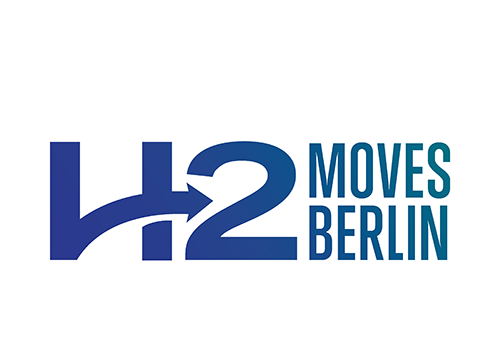Experts discuss the H2 Moves Berlin project and the role of hydrogen in the energy transition
Hydrogen-powered fuel cell electric vehicles (FCEVs) are an important technology with a lot to offer, and not just in the heavy-duty vehicle sector. The rapid refuelling and long range of FCEVs make them strong solutions for green cities, especially in the context of efficient fleet management for passenger vehicles. One example already demonstrating the benefits of hydrogen in cities is H2 Moves Berlin, Germany’s largest fleet of hydrogen passenger vehicles.
The rationale for and further insights on the project were shared at the “Hydrogen vehicles for green cities – tomorrow’s mobility today” panel at the Greentech Festival in Berlin. The debate also highlighted the opportunities and challenges for an ecosystem that supports the increased use of this important technology for the energy transition.
The panelists included: Benny Oeyen, Executive Head, Market Development Anglo American; Ferry Franz, Director Hydrogen Affairs Europe & Group Representative Office Berlin, Toyota Motor Europe NV/SA; Thomas Mohnke, Senior Executive Partner, SafeDriver Group GmbH; and Univ.-Prof. Dr.-Ing. Thomas von Unwerth, expert on alternative propulsion systems from Chemnitz University of Technology.
Benny Oeyen said: „With H2 Moves Berlin, the largest hydrogen electric fleet in Germany, we are demonstrating the feasibility of zero-emission hydrogen vehicles for urban mobility on a large scale for the first time in Germany. The pilot project already demonstrates the enormous potential of FCEVs for the successful scaling of hydrogen mobility in light-duty transport. Berlin’s existing infrastructure is a great platform for us to scale FCEVs in light duty vehicles beyond this fleet. This is one step towards accelerating FCEV adoption in Germany and globally.”
Ferry Franz pointed out: „Our mission at Toyota is to create mobility for all. Particularly in commercial passenger transport, hydrogen electric vehicles such as the Toyota Mirai are the demand-oriented solution. Hydrogen plays a central role in the entire transport sector, especially for heavy usage and heavy duty applications, particularly with regard to the rapid transition to zero-emission mobility. Partnerships such as “H2 Moves Berlin”, which combine comprehensive competencies and expertise in the field of hydrogen mobility, are becoming increasingly important for this.“
Thomas Mohnke said: „There is a growing enthusiasm for hydrogen vehicles among our drivers and guests. The introduction of a hydrogen-powered fleet went smoothly and without restricting operations. After all, efficient shift operations require vehicles with a long range and short refuelling times – this is precisely where hydrogen electric vehicles demonstrate their potential as a sustainable mobility solution for commercial passenger transport. The positive feedback from our passengers and drivers makes it clear that it was worth leaving the comfort zone and taking a first step towards hydrogen.“
H2 Moves Berlin is a joint pilot project of Toyota Germany, Anglo American as well as the SafeDriver Group with ENNOO. With the largest hydrogen fleet in commercial passenger transport in Germany, H2 Moves Berlin aims to offer a sustainable and emission-free mobility option and create broad acceptance for the alternative drive technology. 50 Toyota Mirai (Fuel consumption according to WLPT: hydrogen combined 0.9-0.8 kg/100 km; electricity consumption combined 0 kWh/100 km; CO2 emissions combined according to WLTP 0 g/km) are already on the roads of Berlin, and the fleet will be expanded to up to 200 vehicles in the coming months. The Toyota Mirai are bookable via the Uber app and can be specially ordered with the option “Comfort Electric – Premium Hydrogen / Electric Vehicles”. H2 Moves Berlin is Excellence Partner of the Greentech Festival 2023.
